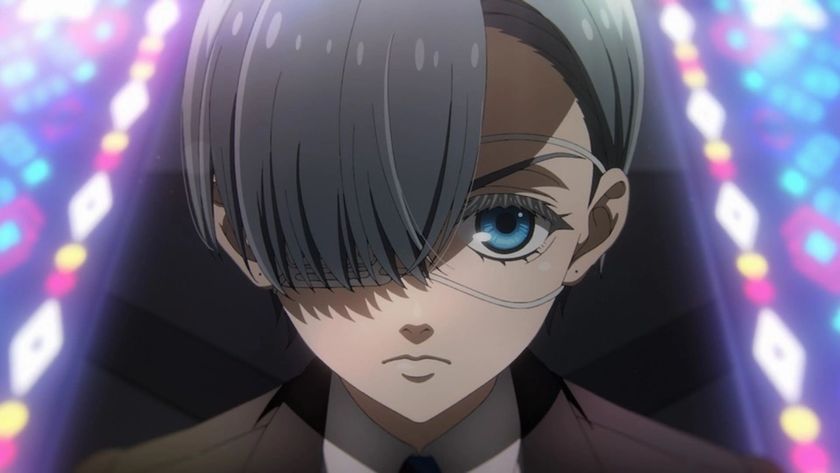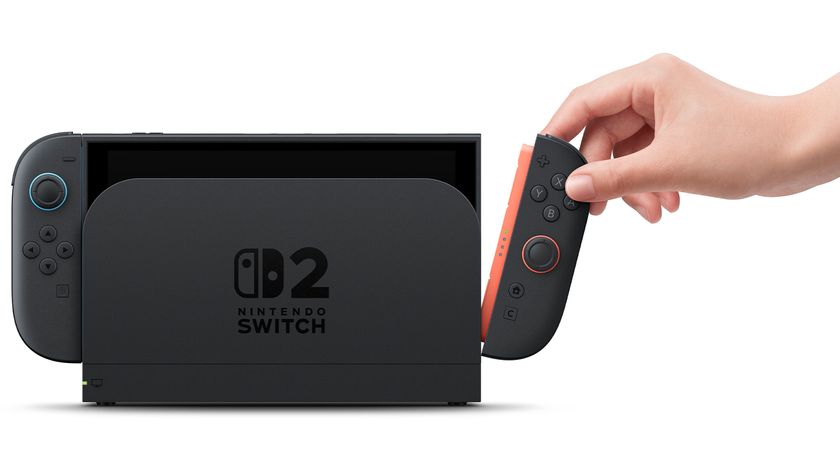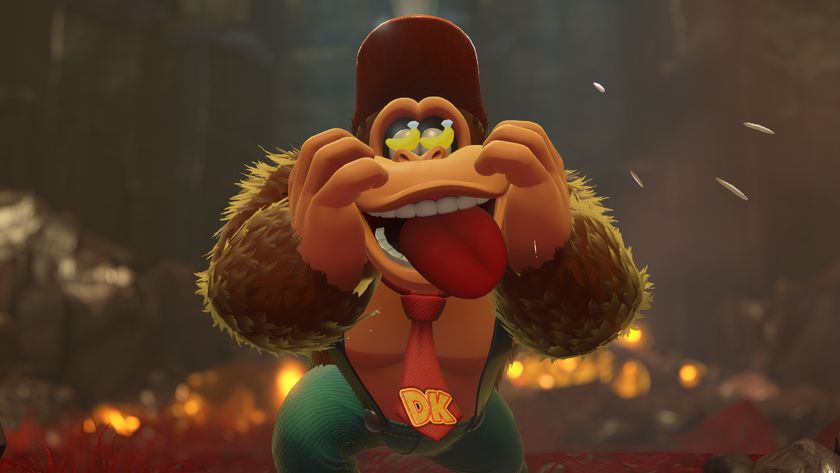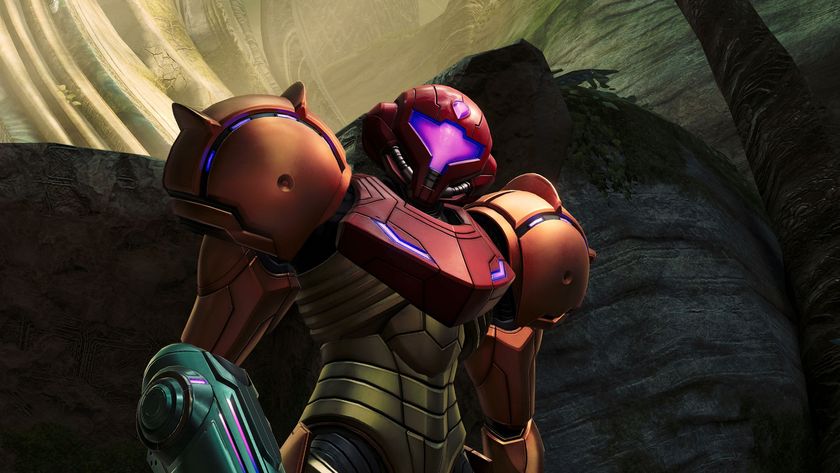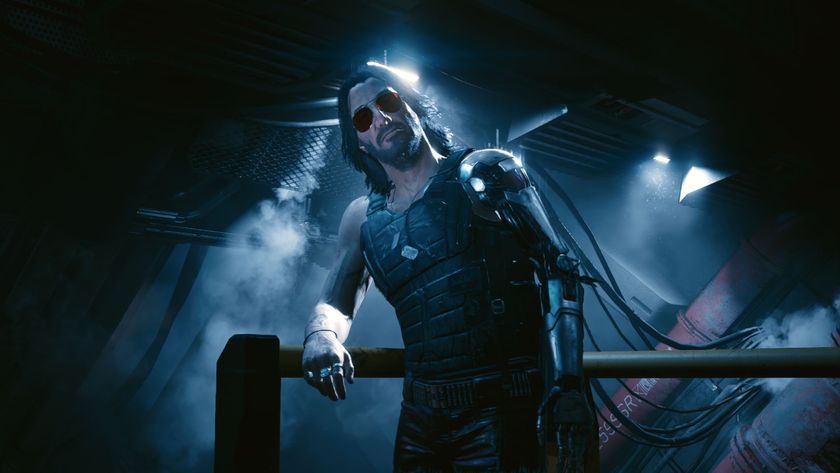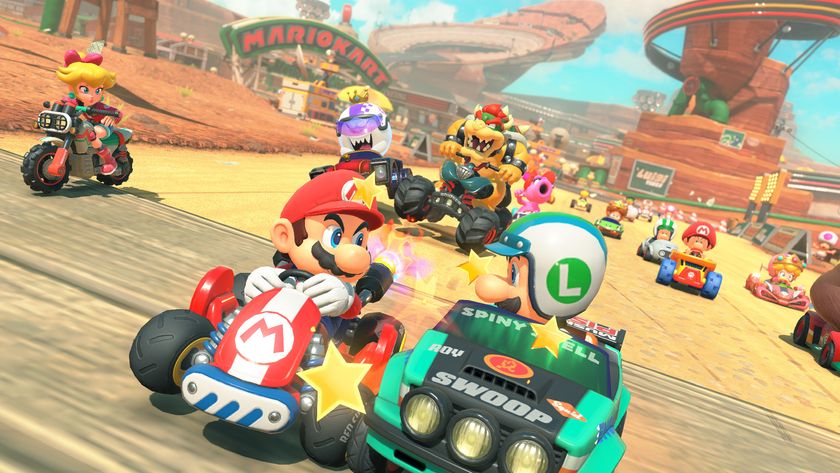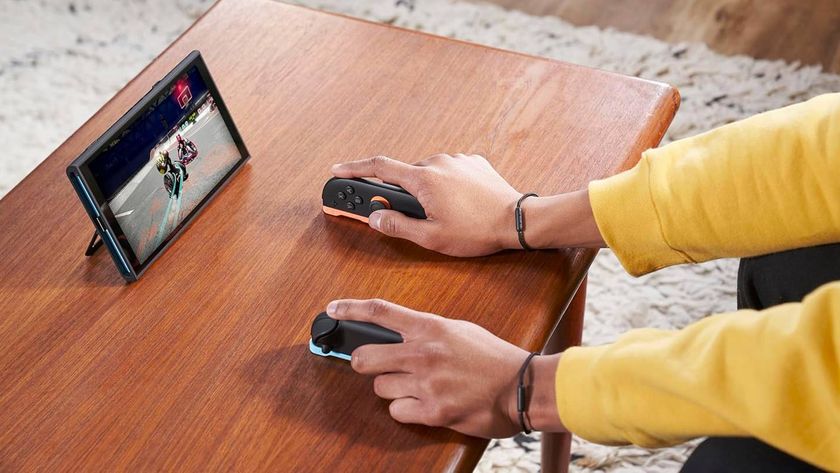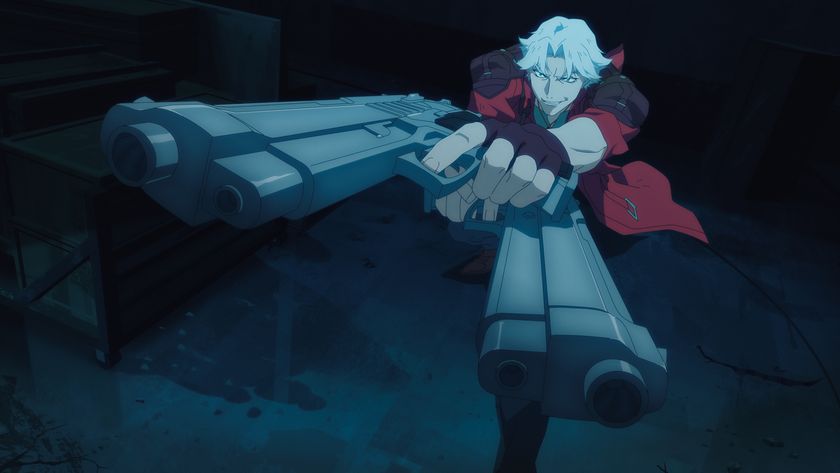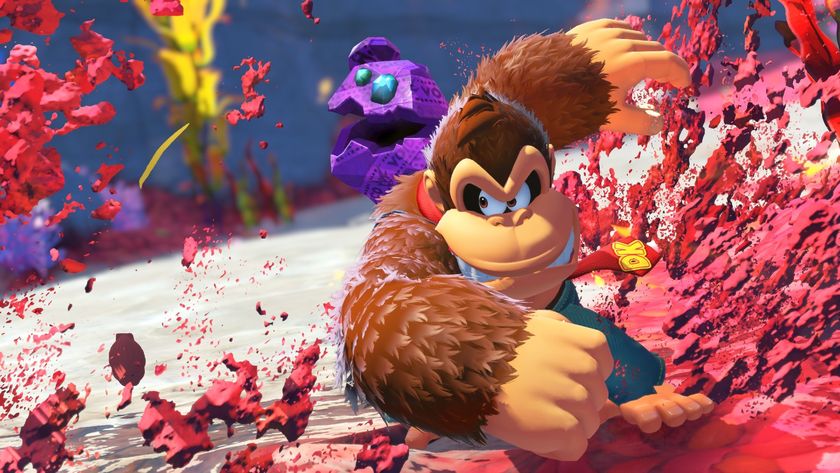The joys of playing "bad" games
Diamonds in the rough
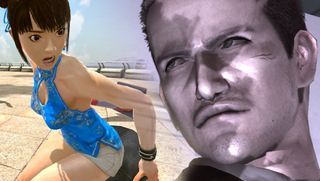
This may come as a shock to you, but I'm often mocked by my co-workers. Sometimes, the good-natured teasing has to do with my willingness to eat fresh for lunch at Subway, or my undying love for Kyary Pamyu Pamyu. But most times, it's about the games I play for fun. On multiple occasions, my GR compatriots stare at my monitor from afar, before sauntering over and asking "Why are you playing that dumb-looking game?" I'll tell you why. I'll tell you all why.
It's because playing bad games can be one of life's greatest joys. We've all experienced some thoroughly awful games in our time--but how many of us did so willingly? I want to evangelize the benefits of expanding your gaming horizons, so that they include both the exceptional and the horrendous. Here's why you should give a second look to the woefully under-appreciated atrocities just waiting to be bought
They often feature fantastically bad voice acting
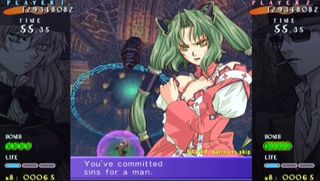
Bad line delivery is an art form in and of itself. Look at Tim and Eric Awesome Show Great Job, or Napoleon Dynamite, or that one scene from Troll 2--part of their charm and hilarity arises from insanely awkward acting by industry novices. The same can be said of video games, many of which have dialogue that's been poorly translated from Japanese and brought to life by community theater rejects. When your main character sounds like he was voiced by some dude whose acting experience includes, and is limited to, sitting in the back row during Acting 101, you know your ears are in for a treat.
Laughably atrocious quotes are usually the most memorable; the original Resident Evil or Devil May Cry are perfect examples. I'm the proud owner of two copies--one physical, one on PSN-- of Castle Shikigami 2, which contains some of the most hilarious script readings I've ever heard in my life. I like quality voice acting toobut now, it's about justice.
Terrible gameplay makes you appreciate good design that much more

To quote the great Curtis "50 Cent" Jackson, "Sunny days wouldn't be special, if it wasn't for rain." By the same token, we tend not to notice ingenious design till we've encountered the polar opposite. You may gripe about a finicky camera in a platformer, or dodgy auto-aiming in a shooter, or nonsensical solutions in a puzzle game. But once you wrestle with the god-awful torture devices that are some games' most basic mechanics, you realize that all your previous complaints in earlier games were positively trivial.
I thought I knew what constituted abysmal stealth gameplay--then I played Shadow Harvest: Phantom Ops, where guards can spot your pinky toe from 300 meters and you die within seconds of detection. Electronic Super Joy isn't an awful game, but the extra split second of waiting between attempts make me really appreciate the driving pace of Super Meat Boy, where death and rebirth transpire instantaneously. Only when you've experienced the worst can you truly know what's best.
Bargain bins are called that for a reason
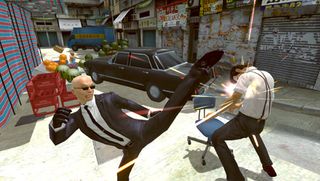
Nowadays, prices plummet faster than an eagle divebombing to catch a salmon in its majestic talons. And when even the big name games are on sale mere months after release, you can only imagine what happens to all the C- and D-list titles. When retailers realize that some games look like diseased lepers on their shelves, they'll slash prices and banish those stinkers to trashcan-like receptacles. That's when you swoop in for the kill.
Sign up to the 12DOVE Newsletter
Weekly digests, tales from the communities you love, and more
Case in point: a pristine, in-plastic copy of a PS3 game retailing for a measly $3.49. That's the case with Kung Fu Rider, which I dare say is the only PlayStation Move game I've ever gotten excited about. When I saw the price, I Amazon Primed that shiz lickety-split. Considering it offered an afternoon of zany fun for less than the cost of most grade-schoolers' lunch money, I'd say I got a pretty sweet deal.
You can pull the ripcord whenever you want
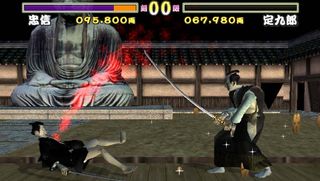
When you buy something, you feel committed to getting your money's worth--and when that something is mediocre, that commitment often breeds resentment. Do you make a habit of walking out of boring movies, or leaving subpar restaurant food uneaten? No; you sit there stewing in agony and self-hatred, determined to get what you paid for. Games are the same way--that $60 of investment can make us slog through experiences we explicitly or subconsciously loathe, just so we don't feel cheated.
But you're not obligated to suffer through a game you know is bad. The second you're not having fun with how ridiculously terrible it all is, you can stop playing it forever, totally guilt-free. I spent about 20 minutes with Kabuki Warriors, and will likely never touch it again. And that's OK, because I bought it for a pittance and I'm totally satisfied with what little I saw--there's no need to mistreat myself by begrudgingly playing through to the end.
You usually know what you're getting yourself into

People look to reviews for a reason: spending money on unproven quantities often leads to disappointment. If you drop $60 on something, you expect a certain level of quality--anything less, and your expenditure of time and money feels like a massive waste. But bad games have a habit of gaining notoriety long after release, when the cost of entry is at its lowest. And when you temper your expectations, you usually get more than you bargained for.
If I had bought Castlevania Judgment on day one with hopes of fighting game excellence, I'd be pissed. A slick gothic aesthetic and flashy super moves mask its shallow gameplay and wonky controls. Now, playing it years later, I don't expect it to be any good, because pretty much everyone says so. And because I've mentally prepared myself to experience a misguided mess of a 3D fighter, it sets me up to appreciate any upsides all the more.
A balanced gaming diet is healthy

Do you ever find yourself playing an amazing game, but enjoying it far less than you feel you should? Maybe you're suffering from an imbalanced game diet. If you reserve all your gaming time for big-budget, AAA titles, you may find you're fatigued by otherwise incredible games. It's just as your mother and Benjamin Franklin taught you: moderation in all things is important. Too much of a good thing is, in the end, quite bad.
Tomb Raider, BioShock Infinite, Grand Theft Auto 5, The Last of Us, Saints Row 4, and Super Mario 3D World are all stellar experiences. But if I forced you to play them all back to back, you'd probably want to jump into a spinning airplane turbine when it was all over. I find that I get the most out of landmark games after decompressing with some bite-sized, frequently terrible downloadables in between. Otherwise, I'd start taking true greatness for granted.
Unintentional humor is oftentimes the best humor

What's the hardest you've ever laughed at a video game? Even the most clever writing in something like Saints Row 4, Portal, or any LucasArts adventure isn't guffaw-worthy, per se--the best you'll usually get is a grin and a chuckle. I don't mean to presume, but it seems like the unintended moments of comedy are the only ones worthy of rolling on the floor laughing, busting a gut, being in stitches, or any other variety of unwieldy idioms.
Watching Ride to Hell's inexplicable cutscenes during GamesRadar's 2013 24-hour livestream made me laugh harder than You Don't Know Jack ever did, even though the latter's a very funny game. I appreciate the whimsy of Phoenix Wright or Mario & Luigi Dream Team, but they've got nothing on a handful of amazing FIFA glitches. Like Tommy Wiseau's The Room, comedic genius can't always be manufactured--sometimes, it just happens all on its own.
Bad games are a culture unto themselves

Japanese gamers have a catch-all term for particularly terrible examples of their hobby: kusoge, which translates in English to "shit game." For fans of all things kusoge, it's quite common to fall in love with a game not just despite any glaring imperfections, but for them. Some kusoge are built to be awful, parodying genre tropes or inviting you to laugh at their horrendous designs. Others are simply so poorly made that they eventually achieve infamy, like Bible Adventures, Night Trap, or Superman 64.
Kusoge aren't just bad--usually, they're so bad that they swing back around to good. Games like Cho Aniki and Muscle March know they're completely ridiculous, and wear their absurdity with pride. Spelunker (not Spelunky, but an inspiration for it) is a short, straightforward game riddled with dumb ways to die, yet it's now revered by hardcore gamers for its relentless difficulty. Sometimes, it's all a matter of perspective--and where some see revoltingly bad games, others see kusoge just begging to be played.
They're capable of things beyond your wildest imagination

Some bad games are a bit like performance art. They're so nauseatingly off-putting, so repulsive to the senses, that it's almost unimaginable how a sane person put effort--no matter how minimal--into this work, then shoved it out into the world for others to experience. People often praise games like Journey or Antichamber for making them see virtual worlds in ways they never thought possible. Guess what--exceptionally bad games can do just the same.
We live in a world where a team of developers designed, programmed, and produced Death Crimson, which was then marketed to Sega Saturn owners so that they may spend money on it. After seeing footage of Death Crimson, such a chain of events may seem in no way connected to reality. Someone saw fit to publish a Pac-Man clone simply entitled "Oh Shit!" onto the market. And Hong Kong '97 is so appallingly hideous, it's hard to believe that it exists in this universe. I still hear its maddening loop of a snippet from a Chinese song blaring during my worst nightmaresand sometimes, in my wildest dreams.
They may be the key that unlocks a personal epiphany
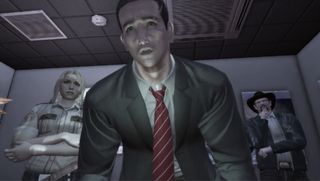
When you've played enough games, be they good or bad, you start to realize something. No matter how similar your tastes are to those of your peers, there will always be some points of contention. Maybe you love Deadly Premonition and your friends all think it's trash; maybe they're addicted to Call of Duty: Ghosts multiplayer and you'd rather go fly a kite. No matter how amazing or terrible you think a game is, there always going to be at least one person slamming or defending it in an online forum. And that's when it hits you.
Maybe the quality of a game is completely subjective. Maybe every video game review you've ever read--even the incredible reviews on GamesRadar--is just an informed opinion, not meant to be taken as a statement of fact. Maybe you should enjoy the things you enjoy, and not care if anyone else agrees with you. Maybemaybe there's no such thing as a truly bad game.
but then again, Bubsy
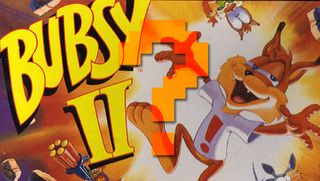
The way I see it, playing a wide variety of games, with less emphasis on popular opinion, is the path to true gaming enlightenment--and that means taking the bad with the good. Maybe you agree with me, maybe you don't. Either way, I want to hear what you think. Leave a comment below--and feel free to recommend games so awful, they've actually a little amazing.
Looking for more thoughts on games, including the terrible ones? Check out The many advantages of being late to the party and The 50 worst games of all time.
Lucas Sullivan is the former US Managing Editor of 12DOVE. Lucas spent seven years working for GR, starting as an Associate Editor in 2012 before climbing the ranks. He left us in 2019 to pursue a career path on the other side of the fence, joining 2K Games as a Global Content Manager. Lucas doesn't get to write about games like Borderlands and Mafia anymore, but he does get to help make and market them.
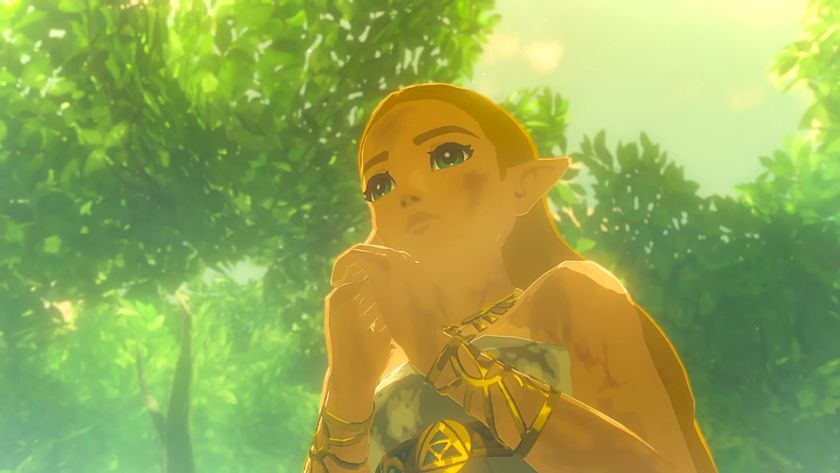
Breath of the Wild's Korok Forest might actually hit 60fps on the Switch 2 re-release, and Zelda fans can't wait for "an actual stable frame-rate" in Hyrule's most infamous region
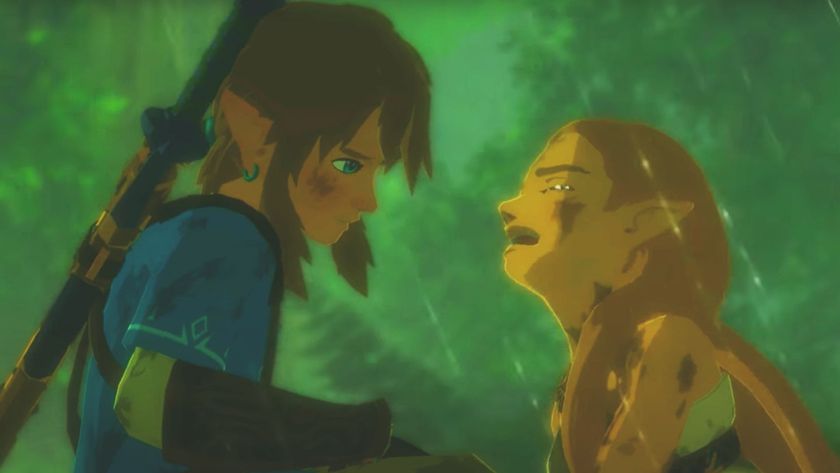
The Legend of Zelda: Breath of the Wild and Tears of the Kingdom are finally getting achievements, but it's paywalled behind the Switch 2 editions

